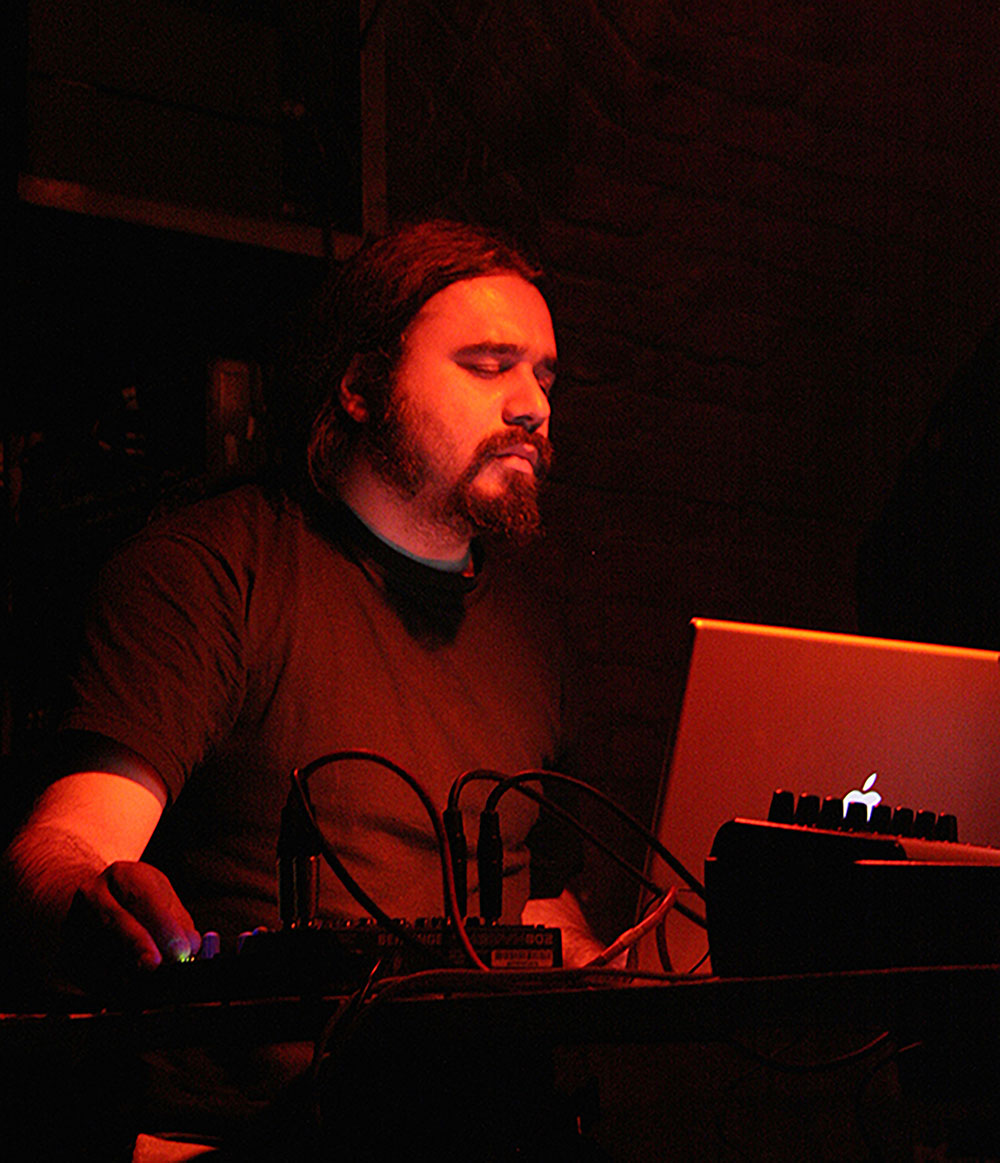
VVAALisboa Soa: Sounds Within Sounds
Crónica 207 CD
Release: 26 September 2023
Get from Bandcamp
Tracklist
- João Castro Pinto: Efflux
- Sara Pinheiro: Do que Ressoa
- Mestre André: No Earlids
- Ana Guedes: Splicing_archives_

Crónica 207 CD
Release: 26 September 2023
Get from Bandcamp
Defining itself as a festival of sound art, ecology and auditory culture, Lisboa Soa seeks to value contemporary artistic creation, but assigning it a social and ecological context, of direct intervention in space, encouraging the participation of different audiences through installations and sound performances, auditory education workshops, debates, lectures and tours focused on the sense of hearing. The purpose of Lisboa Soa is to encourage listening to better understand the place we occupy, and to raise awareness of the impact of human presence on the planet.
Acoustic ecology, the discipline that inspired the festival since its foundation, places listening at the centre, and this is also the focus of Lisboa Soa: to shift attention to the ears and to create conditions, spatial and temporal, that are conducive to the act of listening attentively. One of the main goals of Lisboa Soa is to bring the audience to iconic spaces and create auditory experiences that guide visitors through these spaces, while at the same time provoking a reflection on the involvement of human beings with the environment, with others, with the city and how it all connects through sound.
In 2021, after five editions — one of them particularly intense, during a year of pandemic and restrictions — Lisboa Soa decided to “listen backwards”, commissioning four compositions to four Portuguese artists, who delved into the festival’s sound archive to create new interpretations and meanings from it. This album is created from these compositions: it is a work about memory, with an ear to the future.
Raquel Castro

João Castro Pinto started his activity as a composer and performer of experimental music and as a sound and intermedia artist in the second half of the 1990s. His production comprehends the domains of soundscape composition, live electronics improv, electroacoustic and acousmatic music and radio art. He graduated in Philosophy from Universidade Nova de Lisboa, and is currently completing his PhD, on the composition of soundscapes, at the Portuguese Catholic University. agnosia.me
Efflux was composed through the sound exploration of the selected samples, favouring contrasting approaches. Some sounds were extremely processed, until they became unrecognisable, others were filtered and isolated from their environmental context, however, maintaining some of their spectromorphological profile, and, finally, sounds from concordant and discordant sound families were added. Efflux presents a varied sonic flow of frequencies, amplitude dynamics, between quasi-silence and dense volume, discrete and continuous sounds.

Sara Pinheiro is a sound designer for cinema and video art, acousmatic composition and multi-channel live performance. She graduated in Sound for Cinema at the School for Theatre and Cinema in Lisbon, and in Sonology at the Institute of Sonology at the Royal Conservatory of The Hague. Her PhD, at the School of Music at Bangor University, crosses the areas of Concrete Music with sound design for cinema. She currently resides in Prague where she works as a sound designer and cultural agent, both as a member of the live coding group k-o-l-e-k-t-i-v and the “REGARDLESS” manifesto.
Do que Ressoa looks for the spaces of the meantime, the arrivals and departures before and after concerts/installations, the wait, the oscillation, the resonance of intermediate moments as in a temporal suspension of a memory that I do not have.

Mestre André works as a field-recordist, performer, composer and sound artist for film, dance, performance and theatre. He has composed electro-acoustic sound work for multi-channel systems under the alias O Morto, improvised electronic music as Alacrau and produced beats as Notwan. He works with the bands Jibóia and Banha da Cobra. André is a beekeeper involved in the ecological thinking of aesthetics in natural contexts, his work reflects on an ecological thinking of creative practice and aesthetic relationships within natural human and nonhuman contexts. Within this subject, he recently published the article “Towards a Rewilding of the Ear” in the Organized Sound journal and has been developing the installation series Dwelling Poetics of Dystopia.
No Earlids is the (de)compositional result of sounds from various editions of Lisboa Sounds through the ears that recorded them. The de-composition process was entrusted to intuition in choosing moments from among dozens of hours of recording with the aid of the memory of the moments themselves. Not only intentional moments but also “backstage” moments, in an indiscriminate listening, without blinking.

Ana Guedes lives and works between Portugal and the Netherlands. Her artistic practice explores the plasticity of sound in formats such as performance and installation, interconnecting temporalities and narratives, archival notions, historical, social and political perspectives. Ana Guedes attended the Calouste Gulbenkian Music Conservatory in Braga, graduated in Sculpture from the Faculty of Fine Arts of the University of Porto, obtained a Masters in Artistic Research from the Royal Academy of Art and the Royal Conservatory of The Hague, in the Netherlands.
Splicingarchives integrates fragments of Lisboa Soa’s archive of sound performances. Performances from different editions of the festival are referenced, coexisting as fragments of different filtered voices, processed using analogue tape loops, synthesisers and pipe organ, recorded in the analogue music laboratories Willem Twee Studios in The Netherlands. Jen Reimer & Max Stein (2017), Tomoko Sauvage (2018), Santa Melódica Orchestra (2019), Ana Guedes & Lisboa Soa archives, organ+ tape loops + synth (2021-2023).